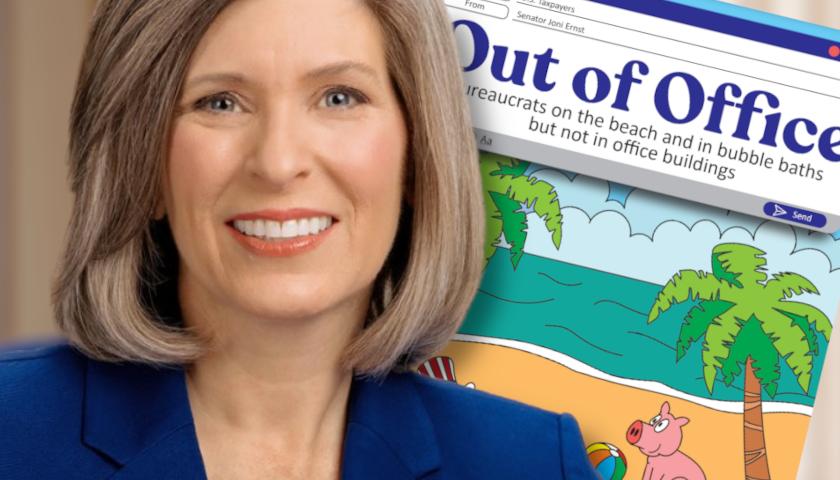Mayor Justin Bibb and City Health Director Dr. David Margolius are proposing banning the sale of flavored tobacco products, including menthol cigarettes and flavored vape products in Cleveland.
The Columbus City Council approved a similar law in December of last year, and it will go into effect on January 1, 2024. Also in December, a bill to ban local governments from outlawing the sale of flavored tobacco products was approved by both chambers of the Ohio General Assembly; however, Governor Mike DeWine vetoed the measure.
This week, the Cleveland Department of Public Health will submit a measure supported by Bibb to the city council requesting that it take into account outlawing the sale of flavored tobacco and vaping goods.
The law, according to the Cleveland Department of Public Health, is required to reduce smoking in Cleveland and save lives.
Margolius says that Cleveland has the highest smoking rate in the nation with 35 percent of adults who smoke, compared to 12 percent nationally. According to Margolius, he is putting forth legislation that, in his estimation, might save many lives but it will also stop kids from picking up the habit of smoking in the first place.
The Centers for Disease Control and Prevention estimates that in 2021 2 million U.S. middle- and high-school students reported using e-cigarettes, with more than eight in 10 using flavored e-cigarettes, some that taste like candy, fruits, coffee, and milk.
“I’m looking forward to working with Cleveland City Council on this issue. With this policy within five years we have the chance to make an incredible impact on the health of our city,” Margolius said.
The proposed policy would include an annual registration procedure for establishments wishing to sell tobacco products, which is subject to yearly examination by city environmental health officials and restricting the sale of flavored tobacco products, including menthol cigarettes and flavored vaping products.
Under the proposed legislation, it would not be illegal for an individual to possess a menthol cigarette if an individual purchased it outside of Cleveland; the policy only restricts what businesses can sell in the city.
“In cities, states, and countries that have restricted flavored products, the smoking rate has declined 20 to 25 percent. If that were to happen in Cleveland, we would save thousands of lives,” Margolius said.
Margolius also noted that Big tobacco designed flavored goods to deliberately target minority groups.
“If you look at people that smoke, nine out of ten who are Black smoke menthol cigarettes, and that’s not by mistake, that’s on purpose,” Margolius said.
The Food and Drug Administration (FDA) notes that a ban on menthol cigarettes could save the lives of 92,000 to 238,000 African Americans nationwide.
According to the United States Census Bureau, in 2020 African American residents made up 51.6 percent of Cleveland.
The proposed ban is receiving push back from local business owners saying that the measure will bring a negative economic impact.
Tina Gasner owner of Get Lit Tobacco and Vape Store told The Ohio Star that it’s not the city’s job to regulate what people can and cannot smoke.
“I am absolutely against the ban. I don’t understand how anyone can tell anyone what they can smoke and what they can’t smoke. I wish that they would leave small businesses alone they have let big tobacco make their money on this for years and years alone and now we are going to be effected its terrible big tobacco is going to be able to come out with things they are allowed to but no one else is. It’s unfair,” Gasner told The Star.
According to Gasner flavored tobacco is at least 30 percent of her business and loosing those sales will be detrimental to her businesses survival.
“This will absolutely have a big impact on revenue. It will make the difference of me being able to hold onto an employee or not. It’s a huge cut,” Gasner told The Ohio Star.
According to David Goldstein Planet of the Vapes Regional Manager, they are working with their attorneys to come to a resolution with the city to make sure their products would still be accessible to their customers.
“I used to be involved in your typical conveinence store establishments and it (the ban) will hurt those businesses tremendously. It will pretty much wipe out approximately a third of their sales. Alot of shops will probably not survive taking that big of a loss, Goldstein told The Star.
He continued that if City Council approves the ban, consumers will still find a way to get the product and may turn to unregulated products on the black market that can be very dangerous.
“This may open the door for “black market” sales I travel alot I’ve seen New York city for example and other larger cities have banned flavors it creates a black market where products are being sold unregulated. It will cause more of a danger and bigger health risk,” Goldstein told The Ohio Star.
An employee at All Puffs Vape and Smoke Shop called the ban a “money grab” and that people are getting money to get these products off of the shelves.
Margolius expects the Cleveland City Council Health Committee to hear the proposal around April, with a goal of institution the policy by the end of the year.
Cleveland City Council president Blaine Griffin says he wants to hear more about the proposal and the impact it would have before making a decision on whether or not to support it.
– – –
Hannah Poling is a lead reporter at The Ohio Star and The Star News Network. Follow Hannah on Twitter @HannahPoling1. Email tips to [email protected]
Photo “Justin Bibb” by Justin M. Bibb. Background Photo “Cuyahoga County Courthouse” by cmh2315fl. CC BY-NC 2.0.





